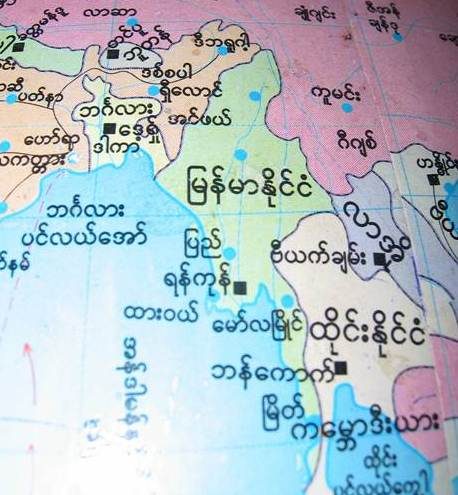In recent weeks Myanmar has been receiving another round of bad press. This time attention is focused on desperate people from the Myanmar-Bangladesh borderlands who have taken to boats seeking sanctuary and better lives across the Andaman Sea. Their journeys have often proved heart breaking.
Evidence of mass graves and gross exploitation in Thailand and Malaysia have shaken the region, with Southeast Asian governments working towards a cooperative solution to what has been a longstanding, and usually ignored, crisis. The roots of many of these tragedies are found in northern Rakhine State where the Muslim minority who call themselves Rohingya are disempowered and shunted aside.
The Myanmar government seeks to avoid responsibility for them, claiming that this group is ineligible for the privileges granted to Myanmar’s other ethnic and religious minorities. When in 2012 Muslim neighbourhoods and villages were attacked in a wave of Buddhist fury, the international community sought to offer a rapid humanitarian response. Since then conditions in Sittwe and the forgotten townships of northern Rakhine State have remained tense, primed for further violence.
Rakhine Buddhist nationalist movements, which argue that they face an unrelenting tide of illegal immigration from Bangladesh, have sought to entrench their dominant position, unwilling to countenance compromise with those who were their Muslim neighbours.
Practical, compassionate and sustained responses to this situation have struggled to adjust to the changing political terrain elsewhere in Myanmar. Many Buddhists resent special treatment for displaced Muslims and have even sought a moratorium on the use of the “R” word. Such sensitivities are compounded by impressions that international activism–whether from the liberal West or the Islamic world–is designed to undermine Myanmar at a time of uncertainty, even vulnerability.
Myanmar is preparing for what we anticipate will be elections in late 2015, with a wide range of other promising economic, cultural and strategic developments also gaining momentum. President Thein Sein and his government in Naypyitaw are justifiably proud of the way they have managed a multi-faceted transformation from entrenched military government to semi-civilian rule.
Their 10-year-old capital exemplifies a grandiose ambition for Myanmar, where the country takes what they imagine is its rightful place as a major regional power. Long land borders with China and India have some investors salivating at the potential for Myanmar to be a new regional hub in manufacturing, energy and mining, with further economic potential once new infrastructure is put in place. It is a big story, with many good news aspects, that also requires awareness of its contradictory trends.
One of the most important is the festering human tragedy of northern Rakhine State. But what will Myanmar’s authorities do about the Rohingya? They face unenviable decisions, no doubt, but it looks like business-as-usual can no longer be sustained. Earlier I suggested that bold responses will be required. The reputation of the country is being damaged with every new story about how poorly Rohingya are treated.
Such mistreatment of the Rohingya, both in Myanmar and elsewhere, shows how far the country, and the region, needs to go before it is a happy place for all its people. Today’s headlines are an important reminder that this is a story that needs sustained attention and effort if anything is to improve.
Nicholas Farrelly is the co-founder of New Mandala. This is an extract of his paper for the 29th Asia Pacific Roundtable in Kuala Lumpur, which is being held on 1-3 June 2015.
 Facebook
Facebook  Twitter
Twitter  Soundcloud
Soundcloud  Youtube
Youtube  Rss
Rss 